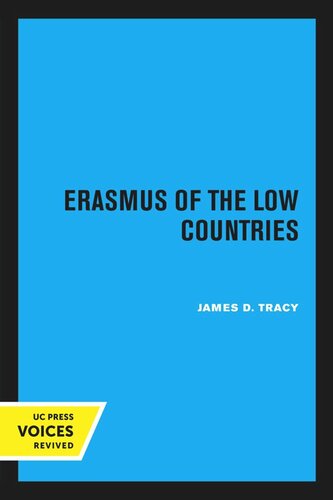

Most ebook files are in PDF format, so you can easily read them using various software such as Foxit Reader or directly on the Google Chrome browser.
Some ebook files are released by publishers in other formats such as .awz, .mobi, .epub, .fb2, etc. You may need to install specific software to read these formats on mobile/PC, such as Calibre.
Please read the tutorial at this link: https://ebookbell.com/faq
We offer FREE conversion to the popular formats you request; however, this may take some time. Therefore, right after payment, please email us, and we will try to provide the service as quickly as possible.
For some exceptional file formats or broken links (if any), please refrain from opening any disputes. Instead, email us first, and we will try to assist within a maximum of 6 hours.
EbookBell Team

5.0
58 reviewsFew historical figures have been more important in modeling the ideal of impartial critical scholarship than Erasmus of Rotterdam (1469-1536). Yet his critical scholarship, though beholden to no one, was not dispassionate. James Tracy shows how Erasmus the scholar sought through his writings to promote the moral and religious renewal of Christian society. Tracy finds the genesis of the humanist's notion of a "Christian republic" of pious and learned individuals in his "Burgundian," or Low Countries, roots. Erasmus's vision of reform, Tracy argues, sprung from a humanist tradition focusing on the importance of teaching (doctrina), a tradition from which Erasmus departed in his optimism about human nature and his deep suspicion of the powers that be. Amid the storms of Reformation controversy, he pruned back the "dissimulation" by which he had thought to convey different meanings to different readers, yet in the end he could not control the way his words were read. If Erasmus's scholarly ideal carries an enduring fascination, so too does his dilemma as a man of circumspection who would also be a reformer.